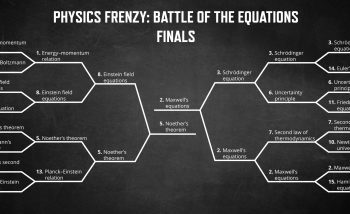Imagine a world where computers are not just faster, but fundamentally different from what we know today. This world isn't far off, thanks to the rapidly advancing field of quantum computing.
Unlike classical computers, which we use daily, quantum computers leverage the principles of quantum mechanics to solve currently unsolvable problems. But what does this mean for you and me?
Let’s explore the fascinating realm of quantum computing and its potential impact on our lives.
Classical computers: The basics
Classical computers, the ones we use today, operate on bits. These bits can be either 0 or 1, forming the binary code that computers understand. This binary system is the backbone of modern computing, from smartphones to supercomputers.
By rapidly switching these tiny on-off switches, a computer can perform trillions of operations every second and encode data, graphics, and sound.
Enter quantum computers
Quantum computers, on the other hand, use quantum bits or “qubits.” Unlike classical bits, qubits can exist in multiple states simultaneously thanks to a property called “superposition.” This allows quantum computers to process a vast amount of information at once.
Additionally, qubits can be “entangled,” meaning the state of one qubit can depend on the state of another, no matter how far apart they are. This phenomenon further amplifies the capabilities of quantum computing.
Entanglement is one of the most intriguing and perplexing phenomena in quantum physics. It allows physicists to create connections between particles that seem to violate our understanding of space and time.
The real-world impact of quantum computers
So, how will quantum computers affect the average person? The truth is, we are still discovering exactly what tasks quantum computing will excel at, but there are some ideas out there that seem promising. Here are a few
Cryptography and security
Quantum computers could revolutionize data encryption. They could crack current encryption methods quickly, making our online security vulnerable. The field of quantum cryptography is emerging to develop new encryption methods that can withstand quantum attacks, ensuring our digital lives remain secure.
Medicine and drug discovery
Quantum computing can accelerate drug discovery by simulating molecular structures and interactions at an unprecedented scale. This could lead to faster development of new medications and treatments for diseases like cancer and Alzheimer’s, revolutionizing healthcare.
Financial services
In the financial sector, quantum computers could optimize trading strategies, risk assessments, and fraud detection by identifying patterns and making predictions that might lead to more secure and efficient financial systems.
Artificial intelligence and machine learning
Quantum computing could enhance machine learning algorithms, leading to more advanced AI systems. This could result in significant advancements in fields such as natural language processing, image recognition, and autonomous vehicles, impacting industries from healthcare to transportation.
The combined powers of quantum computing and artificial intelligence are sparking breakthroughs and breakout technologies at the Perimeter Institute Quantum Intelligence Lab (PIQuIL).
Climate modelling and weather forecasting
Quantum computers could improve climate modelling and weather forecasting by more precisely simulating the complex interactions within the Earth’s atmosphere. If implemented alongside new policy measures, this could lead to better predictions of extreme weather events, helping communities prepare and respond more effectively.
A quantum future awaits
Major tech companies and research institutions, including Perimeter Institute, are making significant strides in quantum research, developing new materials and algorithms to build more stable and efficient quantum systems.
Currently, quantum computers are in the early stages of development. While these machines have demonstrated the ability to perform certain computations much faster than classical computers, they are still primarily used for research and experimental purposes.
One of the critical challenges in advancing quantum computing is error correction. Qubits are highly sensitive to their environment, and even minor disturbances can cause errors in calculations.
Researchers are working on developing quantum error correction codes and fault-tolerant algorithms to mitigate these issues. Achieving reliable error correction is essential for scaling quantum computers to thousands or even millions of qubits, unlocking their full potential for practical applications.
Quantum computing represents a paradigm shift in how we approach computation. While it may still be in its early stages, the potential applications and impacts on everyday life are enormous.
Part of what is so exciting about quantum computing is that even experts don't yet know exactly where it will take us. Researchers around the world are working hard to find out, and we're excited to go on this journey together.
The future of computing is quantum, and it may be closer than you think.
Are you curious about advances in theoretical physics that are happening now? Stay in the know with our monthly newsletter, or watch this space for new researcher profiles and science highlights.
Updated on September 16th, 2024
À propos de l’IP
L'Institut Périmètre est le plus grand centre de recherche en physique théorique au monde. Fondé en 1999, cet institut indépendant vise à favoriser les percées dans la compréhension fondamentale de notre univers, des plus infimes particules au cosmos tout entier. Les recherches effectuées à l’Institut Périmètre reposent sur l'idée que la science fondamentale fait progresser le savoir humain et catalyse l'innovation, et que la physique théorique d'aujourd'hui est la technologie de demain. Situé dans la région de Waterloo, cet établissement sans but lucratif met de l'avant un partenariat public-privé unique en son genre avec entre autres les gouvernements de l'Ontario et du Canada. Il facilite la recherche de pointe, forme la prochaine génération de pionniers de la science et communique le pouvoir de la physique grâce à des programmes primés d'éducation et de vulgarisation.
Ceci pourrait vous intéresser





